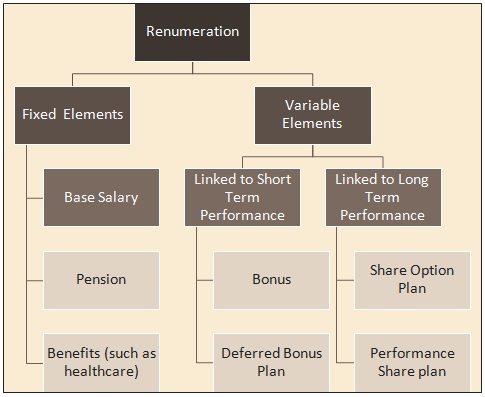- Business Concepts ›
- Human Resources (HR) ›
- Total Remuneration
Total Remuneration
Definition & Meaning
This article covers meaning & overview of Total Remuneration from HRM perspective.
What is meant by Total Remuneration?
Total Remuneration is the sum of compensation package that an employee earns for a specific job. It includes salary, bonuses, commissions, health insurance etc.
The Total Remuneration is performance based and has various components. They basically comprise of fixed annual remuneration (not linked to performance) and variable remuneration elements i.e. performance related and consists of short term incentives and long term incentives as well as fringe benefits and pension compliments. The elements of remuneration is combined and applied varies according to various factors like type of business, needs and practices in different geographies , seniority of role in business etc. As the organization AstraZeneca (a pharmaceutical and biologics company) illustrates the classification:

The Short Term Bonus is based on a lump sum payment related to the target achievement of corporate, functional and individual goals measured over a period and contained within a specific plan. The long Term incentive plans are reserved for selected groups namely the top level executives and target at achievement of strategic objectives that closely support the interest of the shareholders.
Therefore,
Total Remuneration = Basic Salary + Employer Contributions (medical / retirement / group life) + Inconvenience pay (overtime / standby / shift) + Short Term Incentives (performance bonuses) + Long Term Incentives
This article has been researched & authored by the Business Concepts Team which comprises of MBA students, management professionals, and industry experts. It has been reviewed & published by the MBA Skool Team. The content on MBA Skool has been created for educational & academic purpose only.
Browse the definition and meaning of more similar terms. The Management Dictionary covers over 1800 business concepts from 5 categories.
Continue Reading:
What is MBA Skool?About Us
MBA Skool is a Knowledge Resource for Management Students, Aspirants & Professionals.
Business Courses
Quizzes & Skills
Quizzes test your expertise in business and Skill tests evaluate your management traits
Related Content
All Business Sections
Write for Us